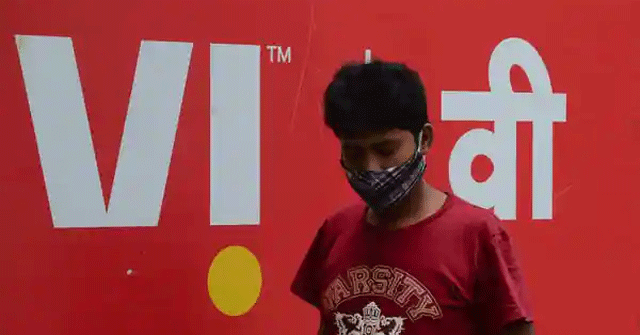
Draft telecom bill may help financially distressed telcos like Vodafone Idea


The draft telecom bill’s provisions related to waiver of fees, charges and penalties as well as writing off of payments that run into default could come to the aid of financially distressed telecom companies such as Vodafone Idea.
Industry executives as well as sector watchers said that having such an enabling legal framework would not only benefit the companies but also be in the interest of consumers and ensure adequate competition at a time when the No 3 telco has been facing challenges paying up vendors on the back of its weak finances and absence of external equity funding of ₹20,000 crore.
“It’s a step in the right direction for the sector, especially if one considers the situation Vodafone Idea is in,” said Rohan Dhamija, senior analyst with research firm Analysys Mason.

An industry executive who did not want to be named said that the measures proposed by the government were clearly aimed at helping Vodafone Idea. “It should help them for sure, some of their payments will fall due in FY23 and government debt is already very high. In the event that some of the charges or fees are waived, it would be a good move,” he said.
However, a senior executive noted that while the provisions may appear to aid one carrier, they were applicable to the entire sector and companies that will fall under the ambit of telecom services after the bill becomes a law. “We should not look at the near future, think about four to five years down the line when who knows what the debt positions of the telcos will be or if there can be other license holders that may face financial stress,” he said, asking not to be named.
The draft telecom bill has proposed a special framework where in case there is default in payment by a licensee, registered entity or assignee, of any amount, the government can determine extraordinary circumstances of financial stress, consumer interest, maintaining competition in the sector, or reliability and continued supply of services exist and in turn it can defer, convert into shares, write-off or provide relief of full or part of the payment amount.

The bill also proposes that government can have the power to waive fee, interest, additional charges, penalty or grant exceptions from the provisions of the bill once it becomes an Act.
Research firm CLSA said that AGR relief of $5-6 billion was crucial for Vodafone Idea, even as the Supreme Court hearing on the correction of computational errors in AGR was awaited.
The Aditya Birla Group backed carrier has government debt burden of ₹1.98 trillion or $25 billion which includes 5G auction spends. Vodafone Idea had gross debt of ₹1.99 trillion comprising ₹1.16 trillion or about 60% of deferred spectrum dues, ₹67,300 crore of AGR dues and ₹15,200 crore of bank debt of which ₹5,000 crore is due for repayment by end FY23.

While rival carriers Reliance Jio and Bharti Airtel have also taken on debt the companies are making profits and have healthy cash flows as opposed to the No 3 carrier which clocked losses of ₹7,296 crore on revenues of ₹10,410 crore for the quarter ended June 2022.
In the light of debt obligations due for the next 12 months, Vodafone Idea’s auditors made a matter of emphasis that the carrier has to raise money quickly and successfully negotiate with lenders for continued support, else their going concern can be in doubt. The matter was highlighted in the carrier’s annual report for FY22. The carrier had said previously that it intended to raise external funding of ₹20,000 crore via debt and equity routes, but it has not concluded the raise so far.
The financial constraints will also impact the carrier’s ability to rollout 5G network which has been behind peers Bharti Airtel and Reliance Jio which intend to launch services as early as this month, as the telco is yet to secure fresh bank loans and finalise gear procurement contracts with suppliers.

Vodafone Idea has also opted for a four-year moratorium on payment of spectrum dues in September last year and earlier this year it opted to convert the interest on the moratorium — amounting to ₹16,000 crore — into equity to be owned by the government, which is about 33%. The government is yet to complete the conversion even as approvals have been given by finance ministry two months ago.
